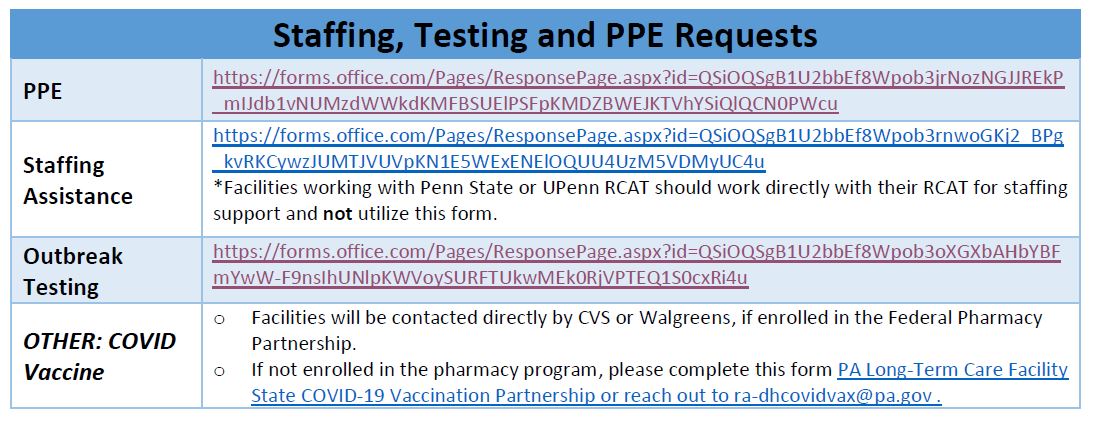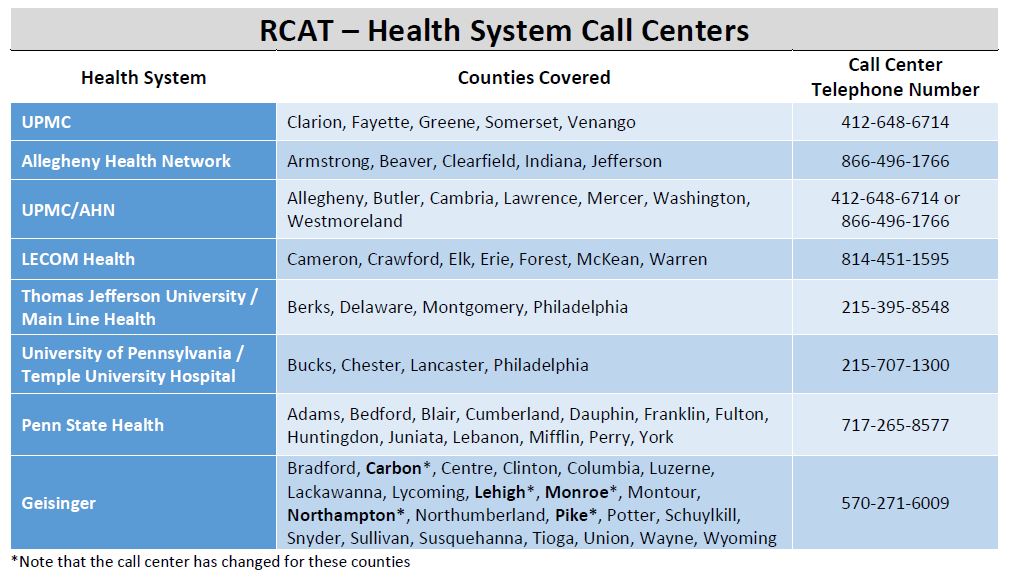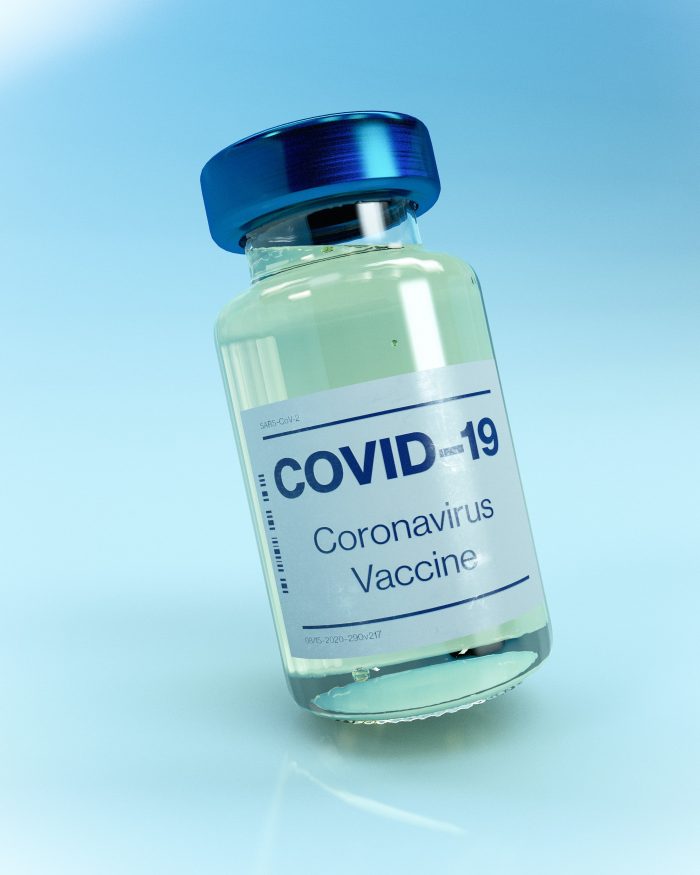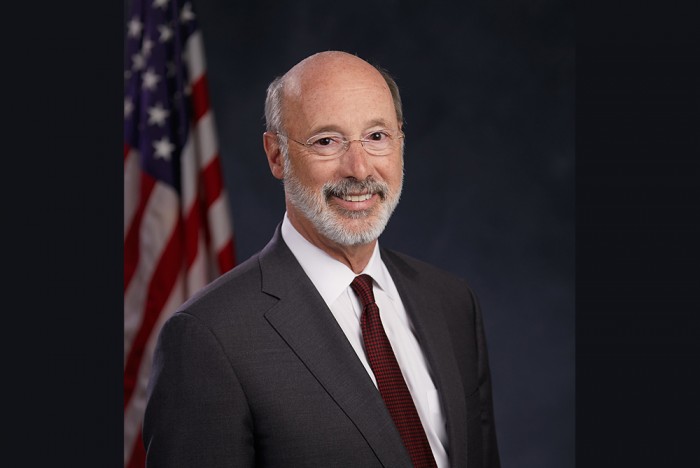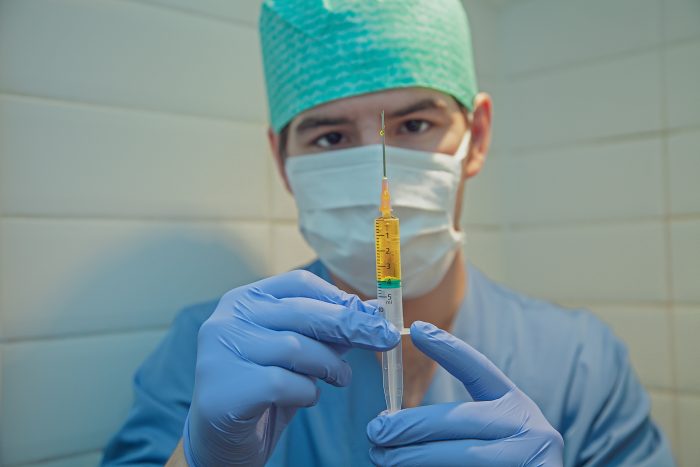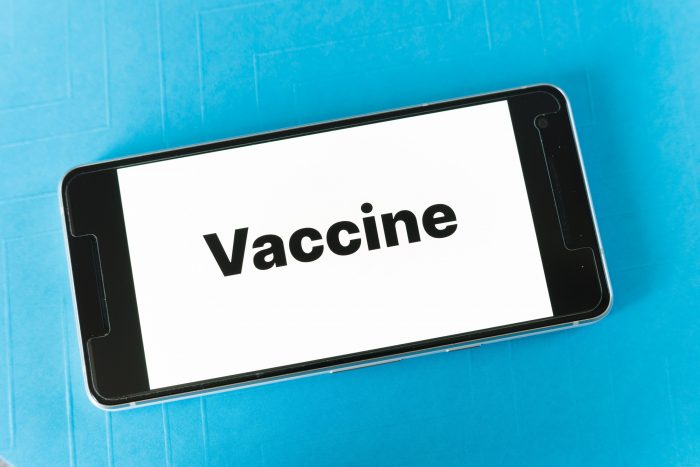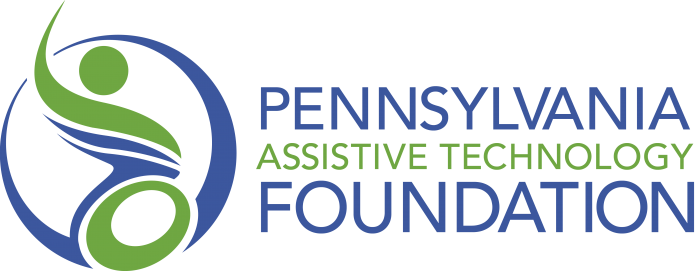On May 29, 2020, Pennsylvania’s State Legislature appropriated $175 million dollars from the federal CARES Act to protect residents and staff in long-term care facilities (LTCFs). With this funding, and in partnership with select health systems, Pennsylvania’s Long-Term Care Task Force (LTC-TF) developed the Regional Response Health Collaborative (RRHC) program. Federal funding for the RRHC program ended on December 30, 2020.
Due to federal dollars no longer being available and a constrained state budget, the Wolf Administration has prioritized the allocation of limited funds to continue providing facilities with support during COVID-19 facility outbreaks. This state-funded effort will leverage the expertise of the health systems through the Regional Congregate Care Assistance Teams (RCAT), a new, more limited version of the RRHC. Starting on December 31, 2020 and lasting through February 28, 2021, the RCAT will provide COVID-19 outbreak support to facilities. Those facilities who were eligible for the RRHC program will also be eligible for the RCAT.
- Continued supports that will be offered to the RCAT-eligible facilities are:
- Call centers currently utilized under the RRHC program will remain available to engage health systems for infection control/prevention services and education in the event of COVID-19 outbreaks. (Facilities located in Carbon, Pike, Monroe, Lehigh, and Northampton Counties, please refer to the chart below for updated call center information).
- Personal protective equipment (PPE) will be provided by existing and new vendors. Refer to the chart below to request assistance.
- Staffing assistance will continue to be provided by existing and new contracted agencies as well as the PA National Guard, but it will be more limited.
- Testing assistance is available as resources permit through the Pennsylvania Department of Health’s (DOH’s) vendors. Facilities experiencing a current outbreak or support from a RRHC or DOH vendor will be enrolled in testing support first, and then the program will expand based on the availability of resources.
- Tomorrow’s Healthcare portal will still be accessible; webinars will be scheduled as needed.
With the introduction of the RCAT, coverage remains the same as the RRHC program except for the Northeast Region. Engagement with LECOM, UPMC (including Allegheny Health Network, Excela, Penn Highlands, and St. Clair), Penn State, University of Pennsylvania (including Temple), and Thomas Jefferson (including Main Line Health) will remain the same. Geisinger will continue to provide coverage for the Northcentral region and has expanded to support Carbon, Monroe, and Pike Counties as well. The LTC-TF will backstop RCAT support across the commonwealth and ensure support for facilities located in Lehigh and Northampton Counties.
Some services provided by the health systems have changed. Members are encouraged to refer to the updated contact list.